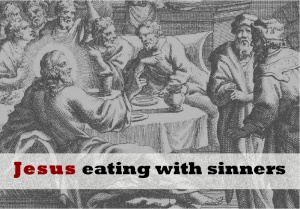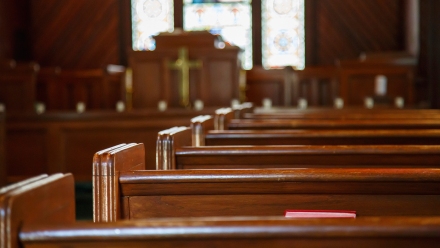 In the gospels Jesus takes a lot of grief for who he hangs out with. And not just from arrogant snobs. His own disciples sometimes wonder about the company their teacher keeps. But the accusation most frequently tossed at Jesus is that he eats with “tax collectors and prostitutes.” That is why, when many Christian’s talk about what it means to truly follow Jesus, our willingness to associate with someone like a prostitute becomes the place where the rubber meets the road.
In the gospels Jesus takes a lot of grief for who he hangs out with. And not just from arrogant snobs. His own disciples sometimes wonder about the company their teacher keeps. But the accusation most frequently tossed at Jesus is that he eats with “tax collectors and prostitutes.” That is why, when many Christian’s talk about what it means to truly follow Jesus, our willingness to associate with someone like a prostitute becomes the place where the rubber meets the road.
And yet, if you go back and read many of the barbs thrown at Jesus, they don’t mention prostitutes, but rather “sinners”. But they almost always mention tax collectors.
When the Pharisees saw this, they asked his disciples, “Why does your teacher eat with tax collectors and sinners?” (Matthew 9:11)
The Son of Man came eating and drinking, and they say, ‘Here is a glutton and a drunkard, a friend of tax collectors and sinners.’ But wisdom is proved right by her deeds.” (Matthew 11:19)
But the Pharisees and the teachers of the law who belonged to their sect complained to his disciples, “Why do you eat and drink with tax collectors and sinners?” (Luke 5:30)
Even more amazing is that Jesus himself uses tax collectors as examples of a pretty low form of humanity.
If you love those who love you, what reward will you get? Are not even the tax collectors doing that? (Matthew 5:46)
So, I guess if you really want to be a disciple, it is vital to spend some quality time with an IRS agent. But I think we instinctively know that is not the case. You cannot make a one to one connection between “prostitutes and tax collectors” with whom Jesus chose to associate and “prostitutes and tax collectors” today. Rather, it is vital for Christians to discover who are our, modern-day “sinners and tax collectors.”
To do so, we must first remember what made these people so repugnant to their fellow Jews. Prostitutes or sinners is fairly obvious. They sinned against God’s law. But it goes deeper than that. It is one thing to commit adultery. It is something else to continually and willfully commit adultery. For a descendant of Israel to witness a fellow Israelite disregard God’s law over and over again was too much.
Tax collectors were even worse. Judea was under control of the hated Roman Empire. The promised land was occupied by a pagan invader. Tax collectors chose to work with and collect taxes for Rome. They were traitors who profited from their treachery!
So you see the situation. A good, upstanding, law-abiding Jew could have thought the following: “We are occupied by idolators because we have sinned. Look, those prostitutes are blatantly disobeying our most precious commandments. It is because of sin like that we are suffering. And to top it off those tax collectors work with our oppressors. And they make money from it. How disgusting!”
That is why it is such a big deal that Jesus eats with these types of people.
So who today would we, as followers of Jesus, find this repugnant? Who do we view as profiting from sin? Who do we believe are traitors to our most sacred values?
These questions are difficult. Our society is much more fractured than 1st century Judaism. In America, what one person finds repugnant the next person celebrates. This is also true for Christians. We disagree sometimes on even what is sin. So there may not be a particular category or type of person that fits “prostitutes and tax collectors” for us.
Instead, let’s make it personal. Who do you find offensive and disgusting? For some, homosexuals would qualify. We find their lifestyle repugnant and believe they are warping society. For others, it might be those who find homosexuality so repulsive. For a conservative it might be liberals. For democrats, republicans. Look into your heart. Who do you blame for the ills of society? Who do you think is destroying the church? Those are your sinners and tax collectors. And the call of Jesus is to be so kind, so good, so full of grace, that those people want to eat with you.
Now understand, Jesus never says that being a prostitute or tax collector is fine with him. In fact, Jesus is extremely hard on sexual sin. He is the one that not only says adultery is wrong, but lust as well. He asks the woman caught in adultery to “go and sin no more.” When he eats dinner at the home of Zacchaeus, a tax collector, Zacchaeus is so moved by the experience that he vows to pay back four times to anyone he has ripped off (my assumption is he makes this promise knowing he would have to do some payback). Jesus does not eat dinner with tax collectors and prostitutes because he thinks those are worthy professions. He eats dinner with tax collectors and sinners because He thinks they are worth it.
And that is the challenge for us. Can we be so moved by the kingdom that we find worth in those we typically see as repulsive? Can we love those we usually skewer? Can we be so full of grace that even our enemy must admit that we make a not so bad dinner companion?









